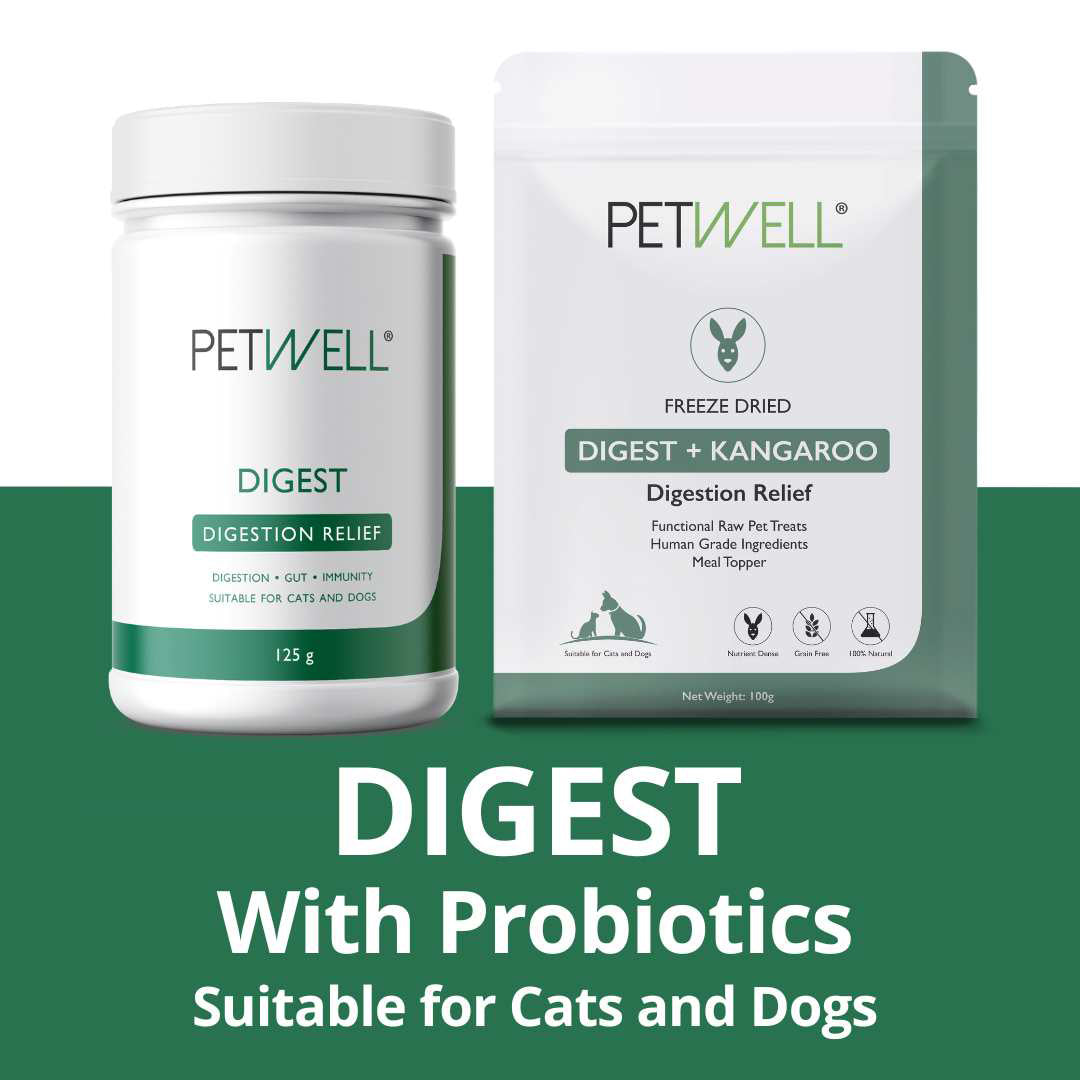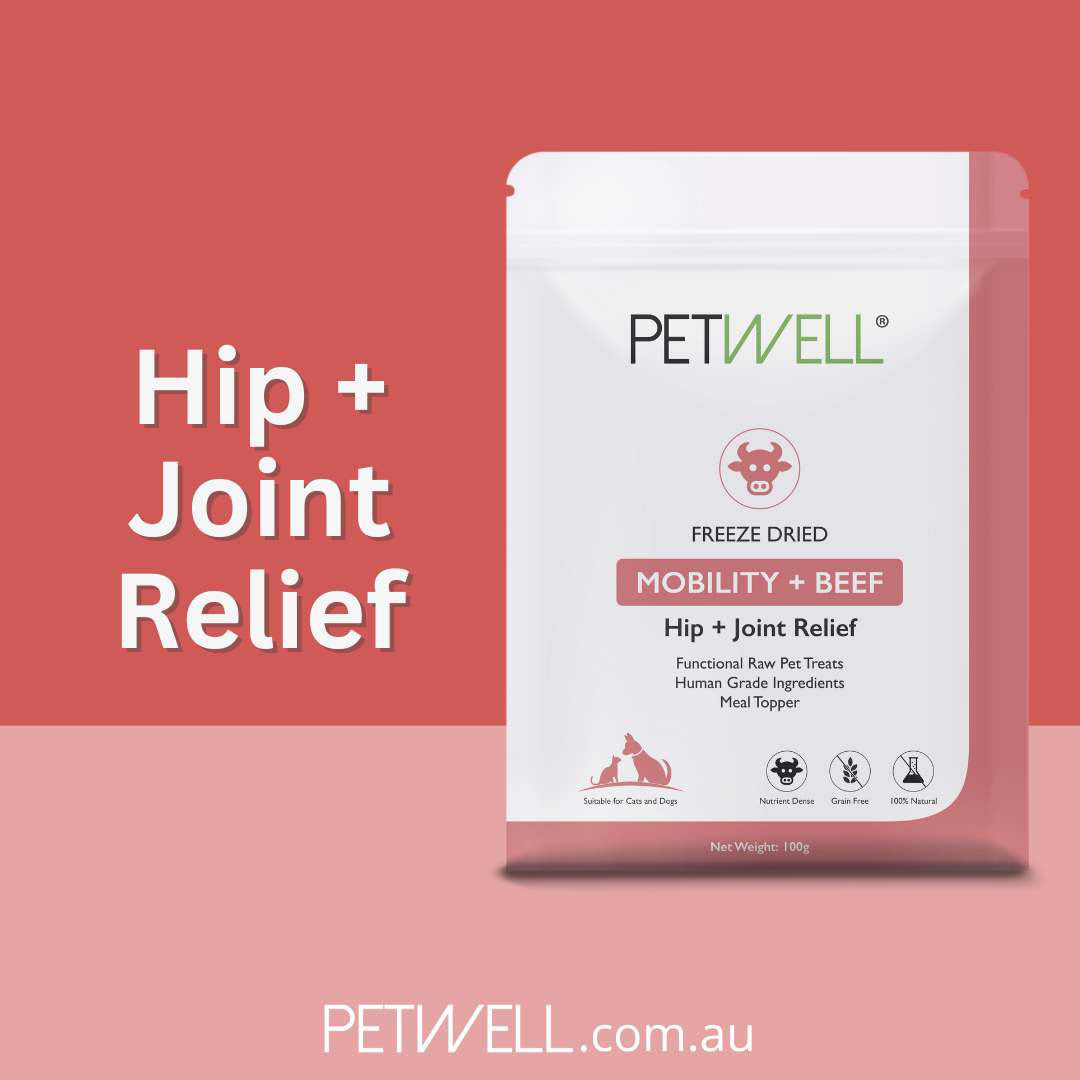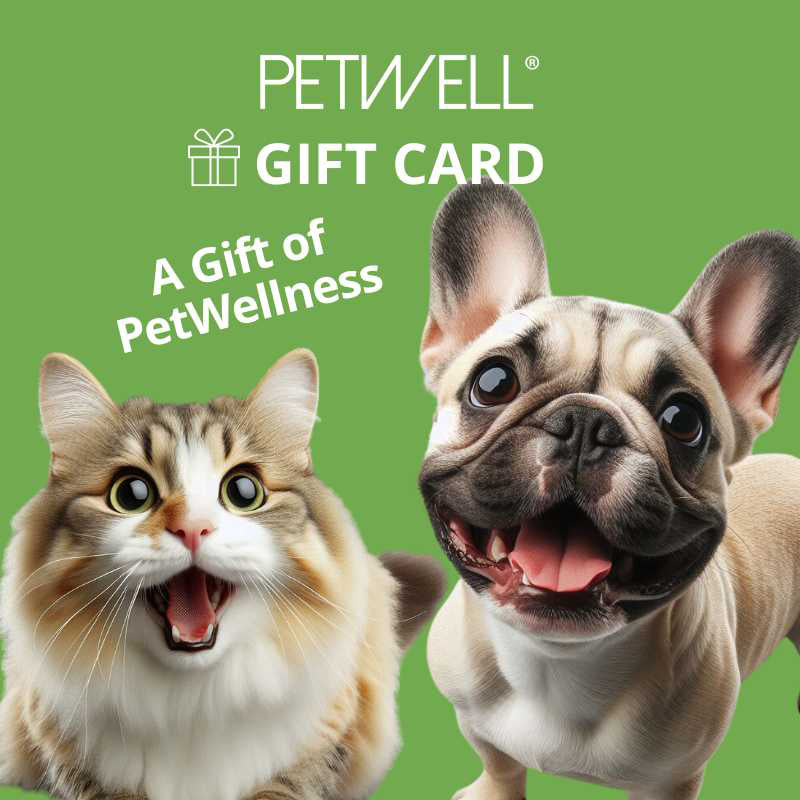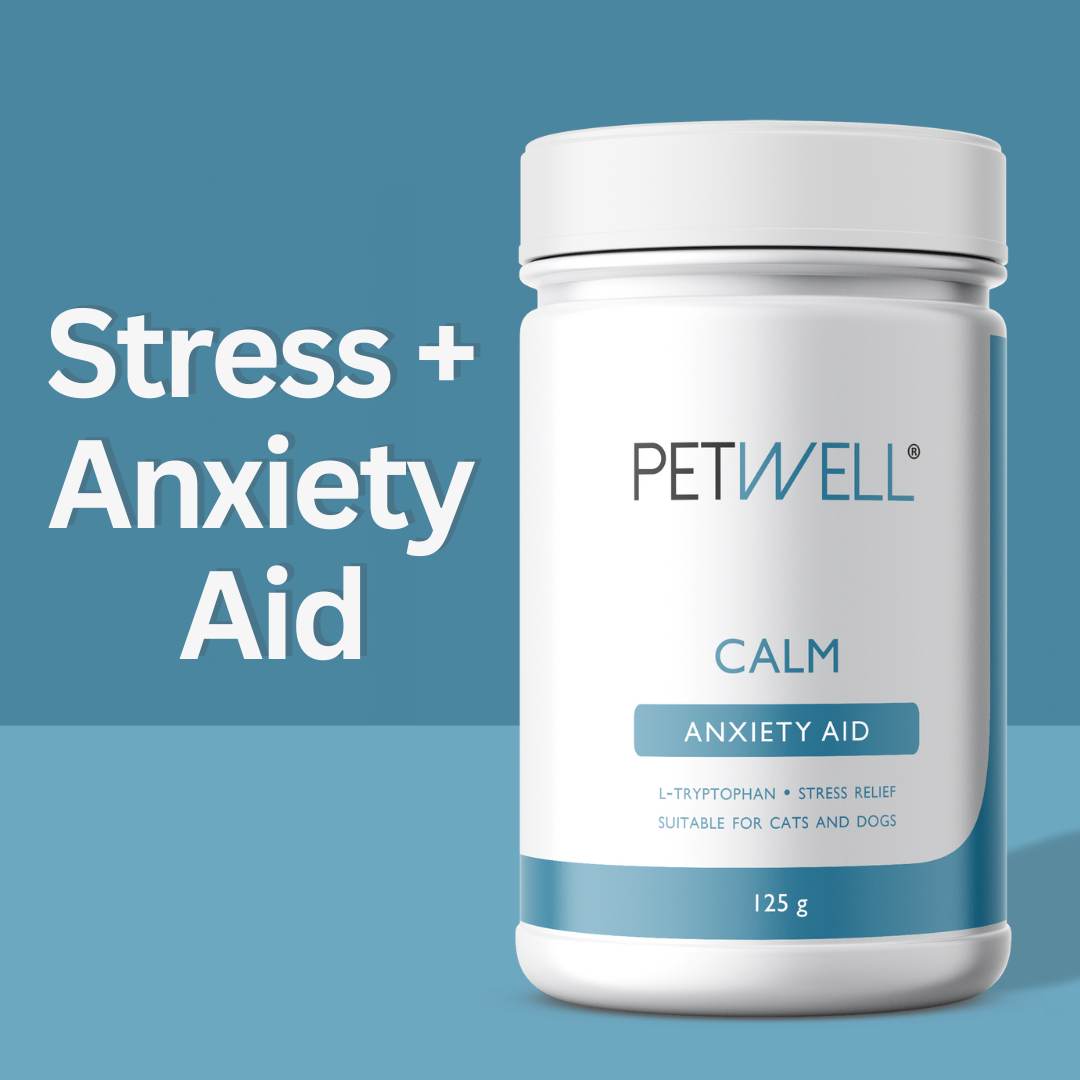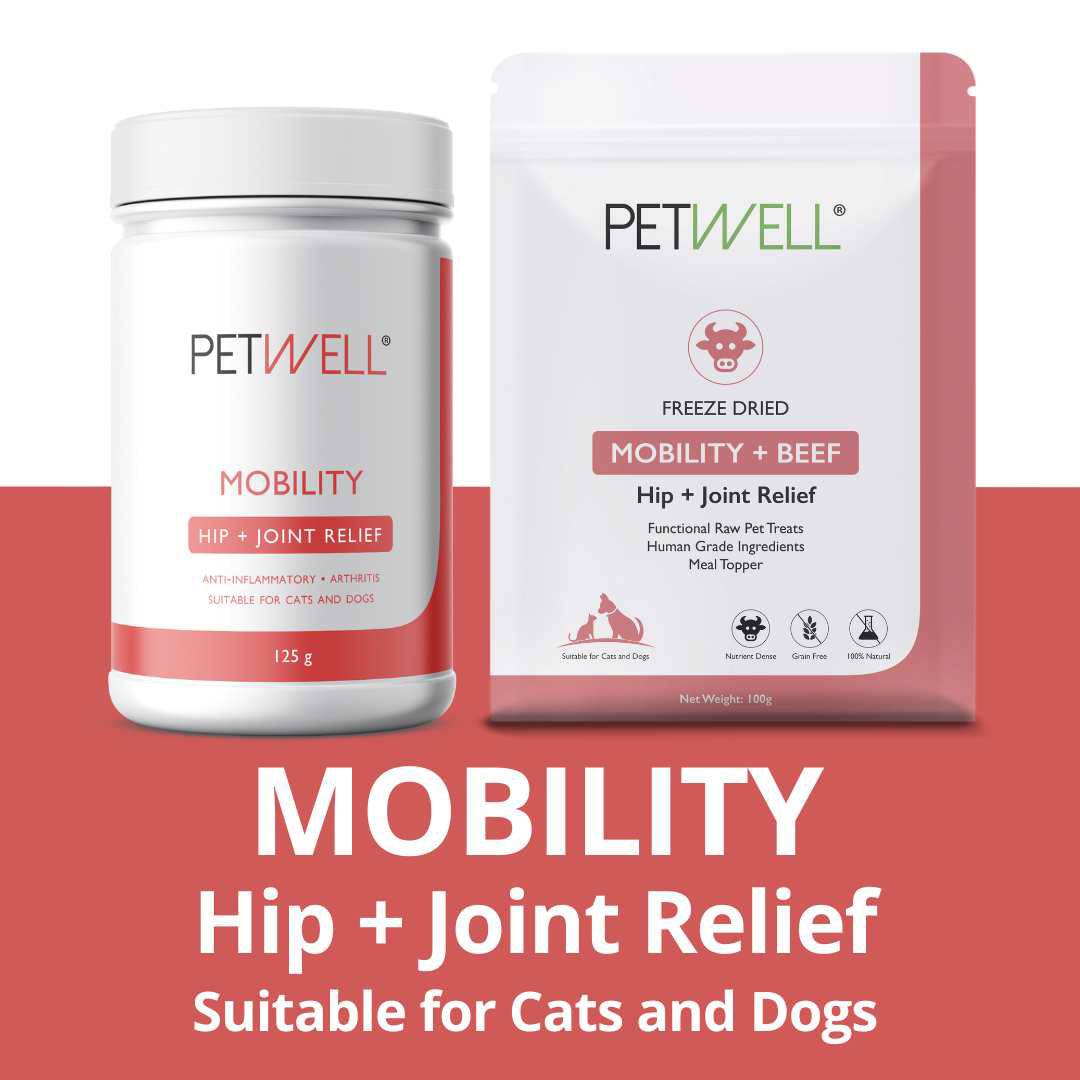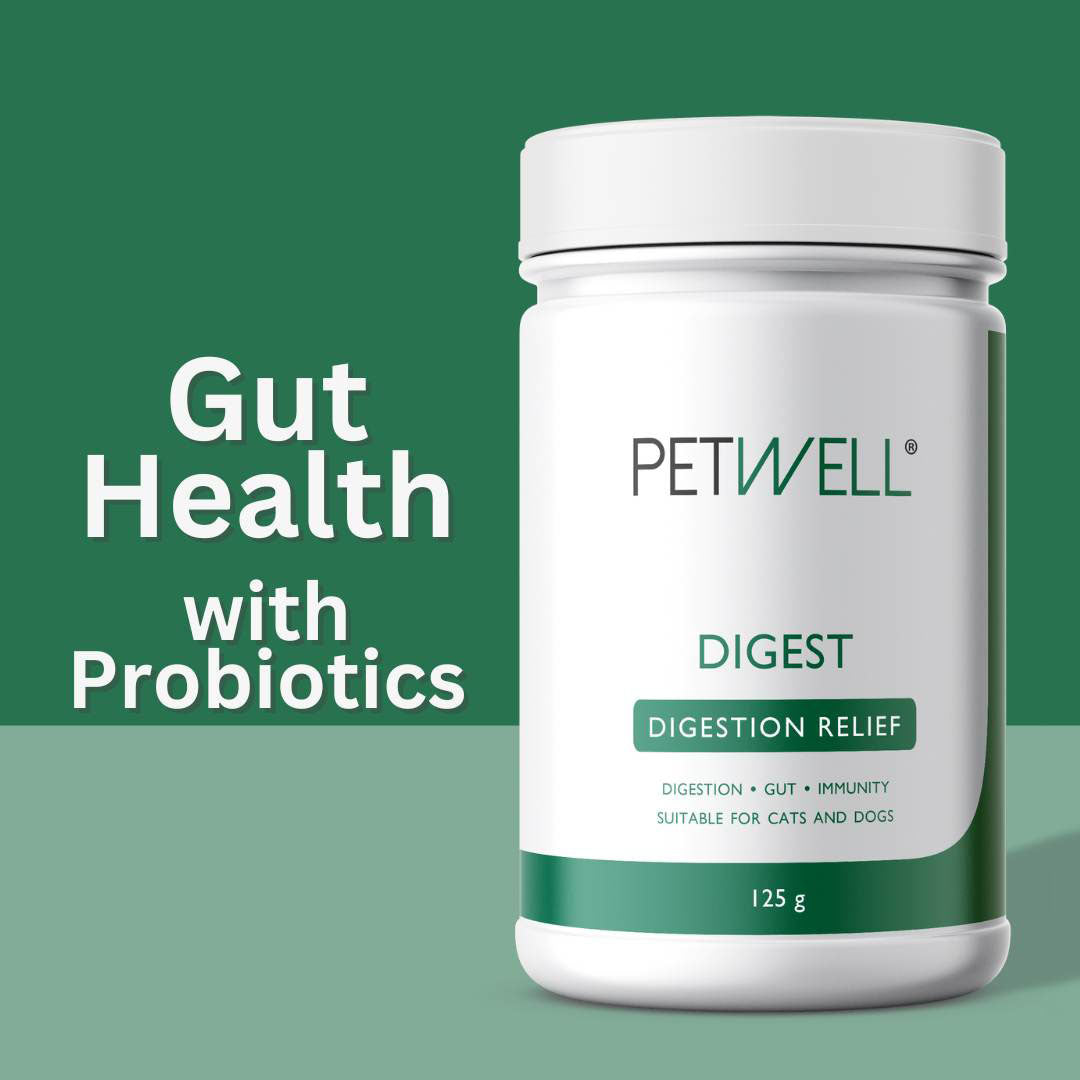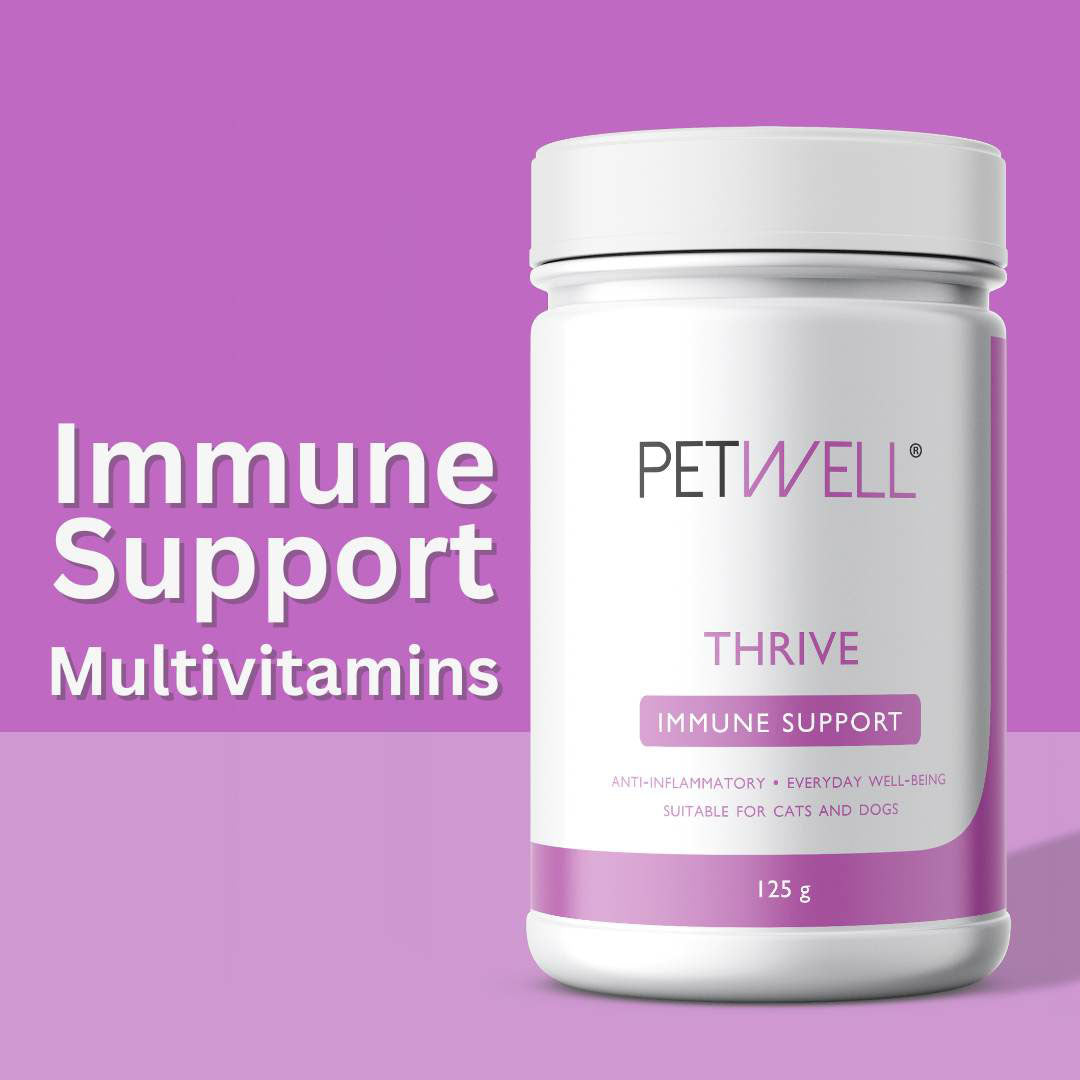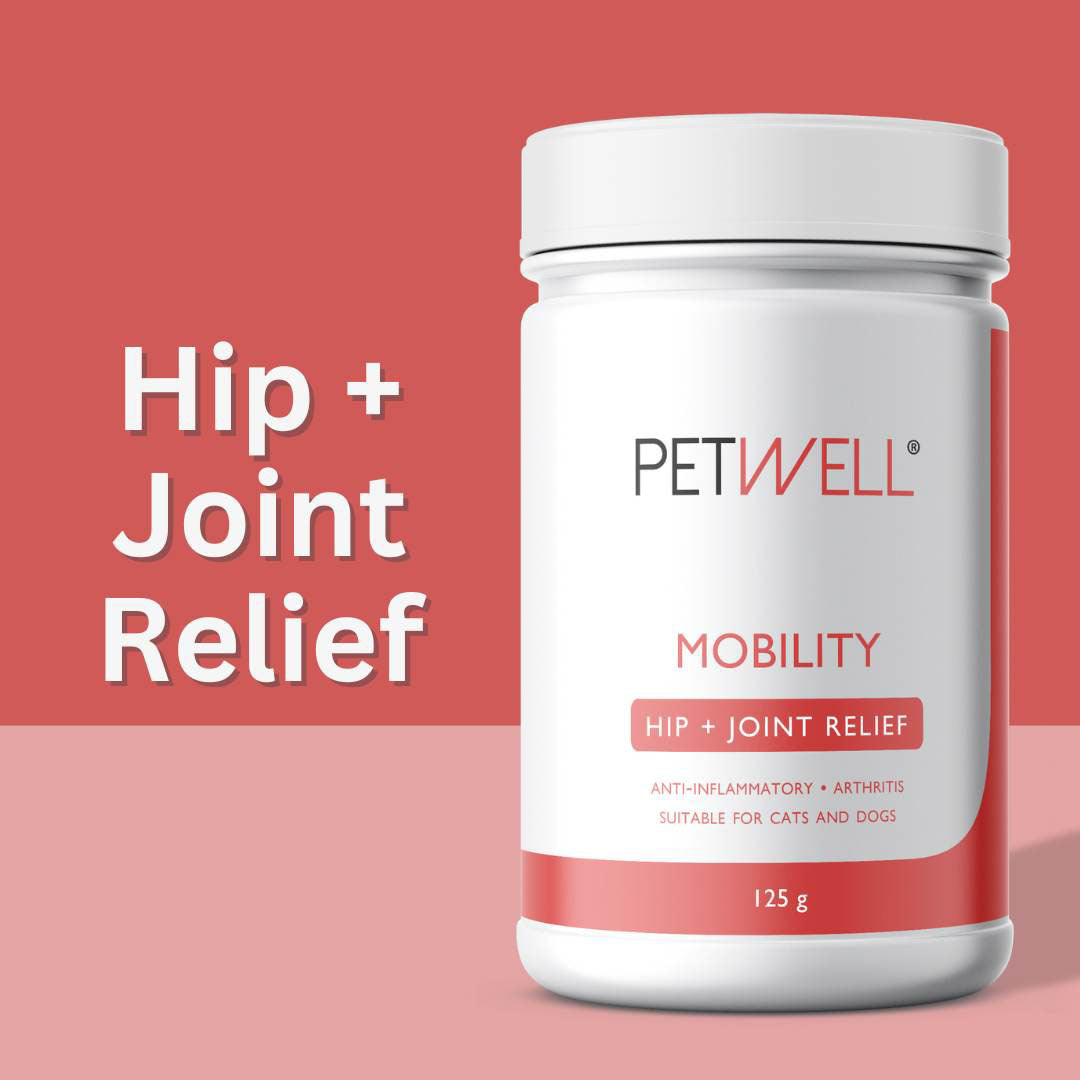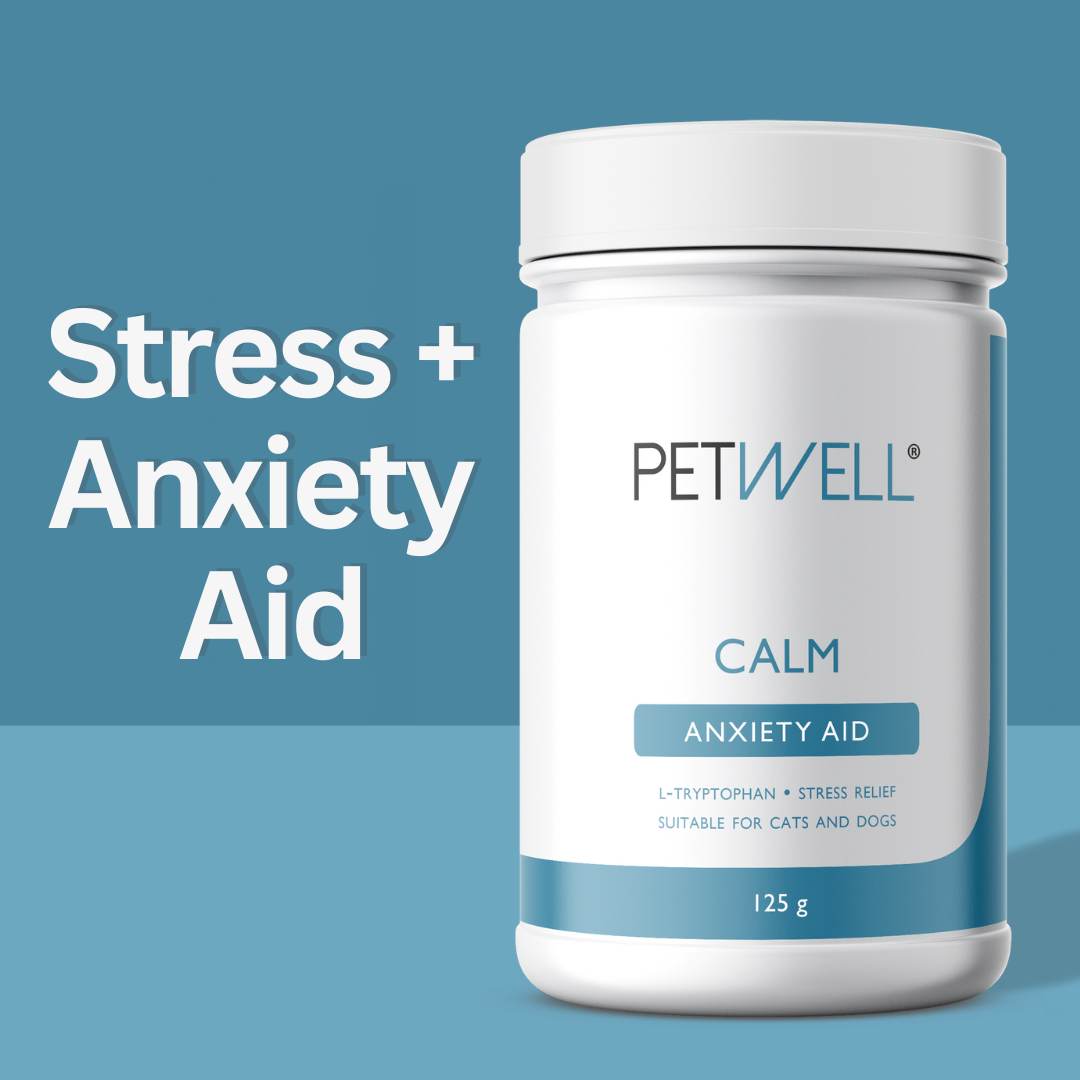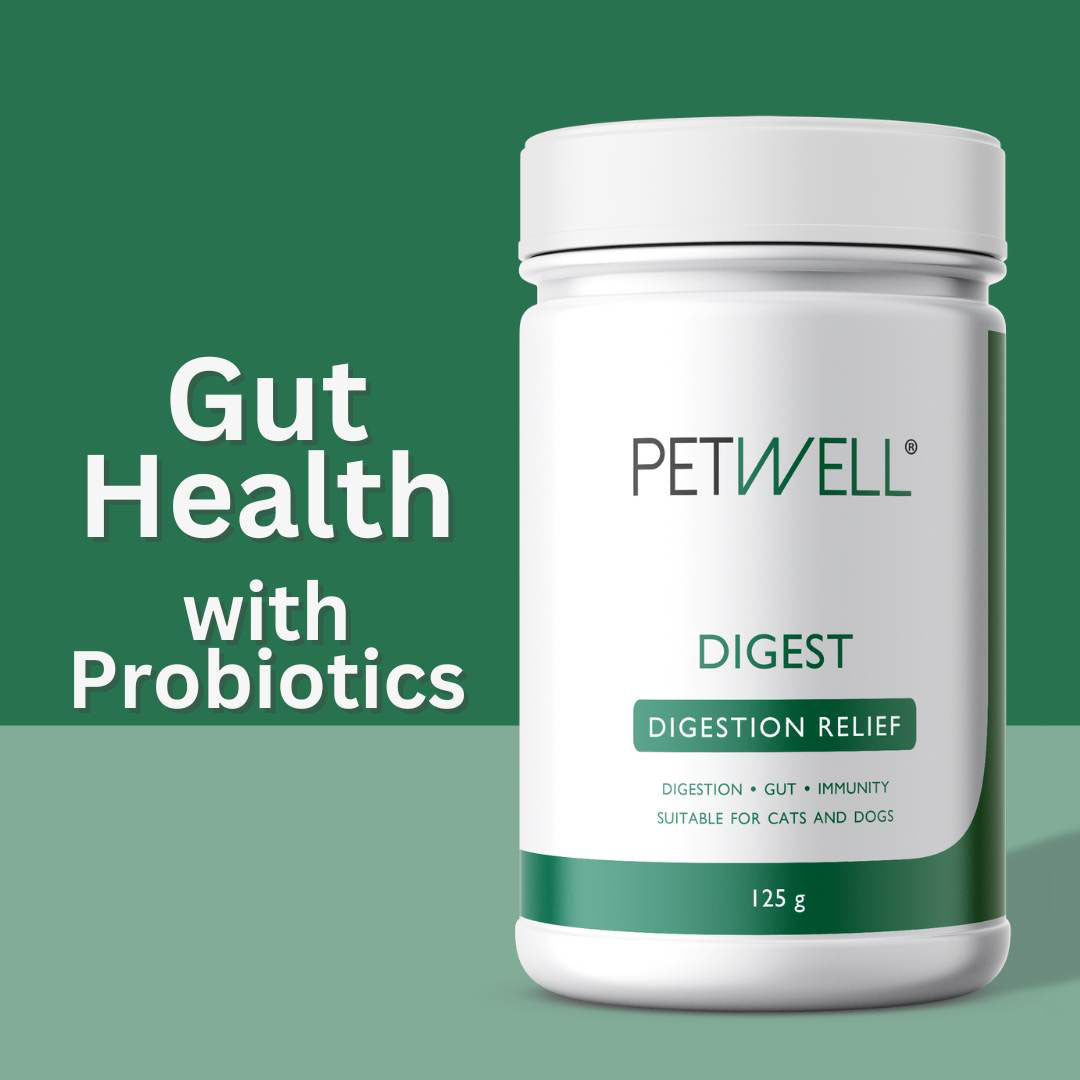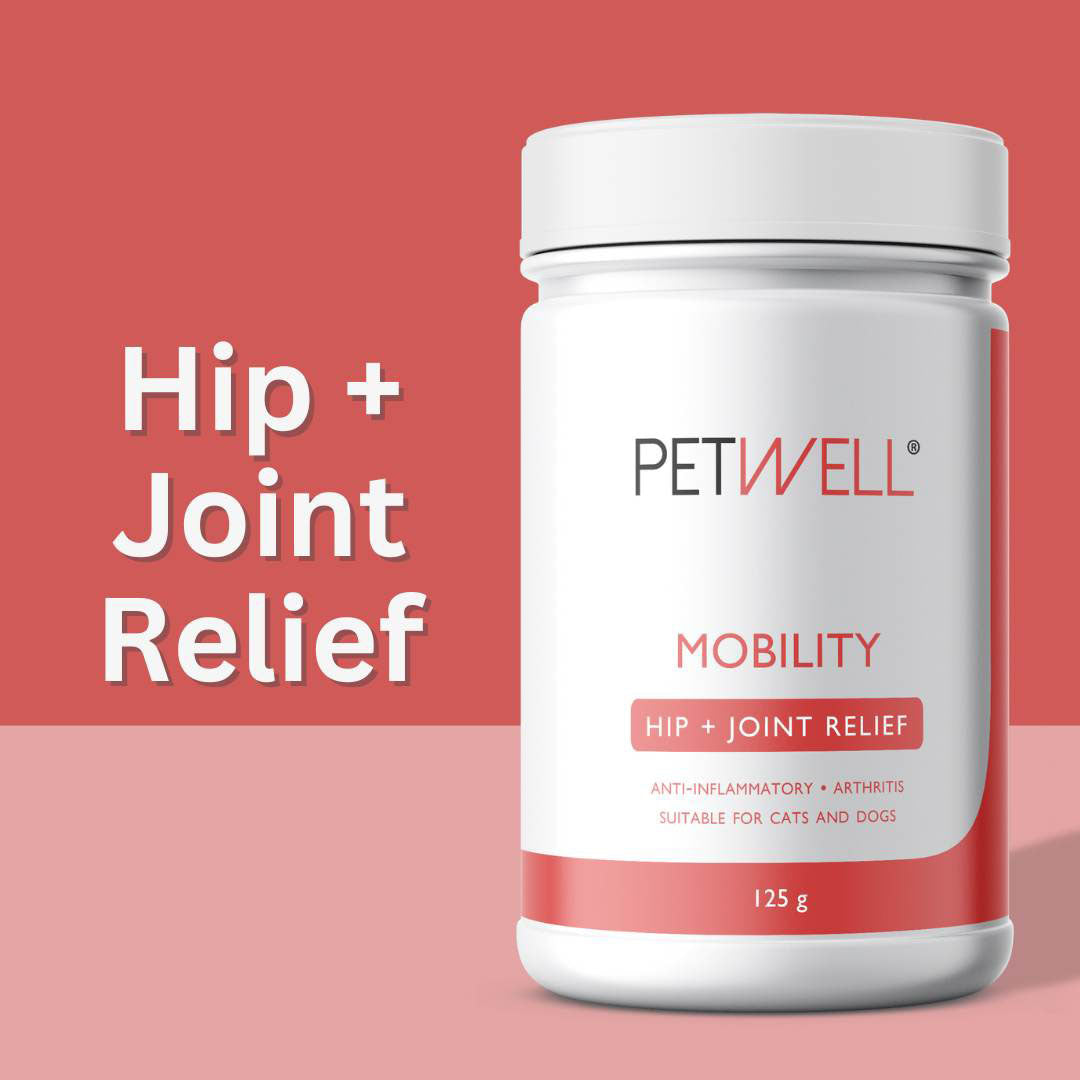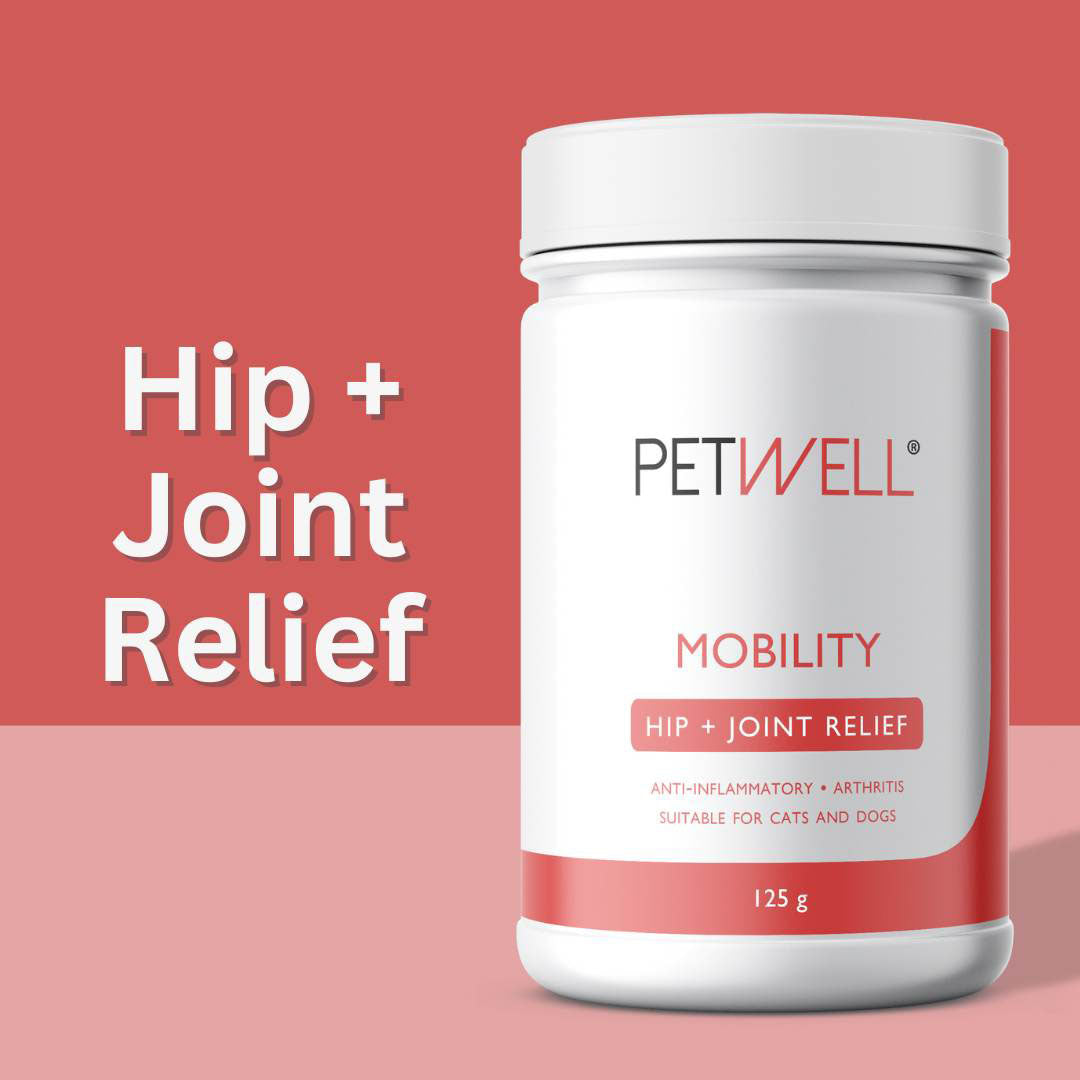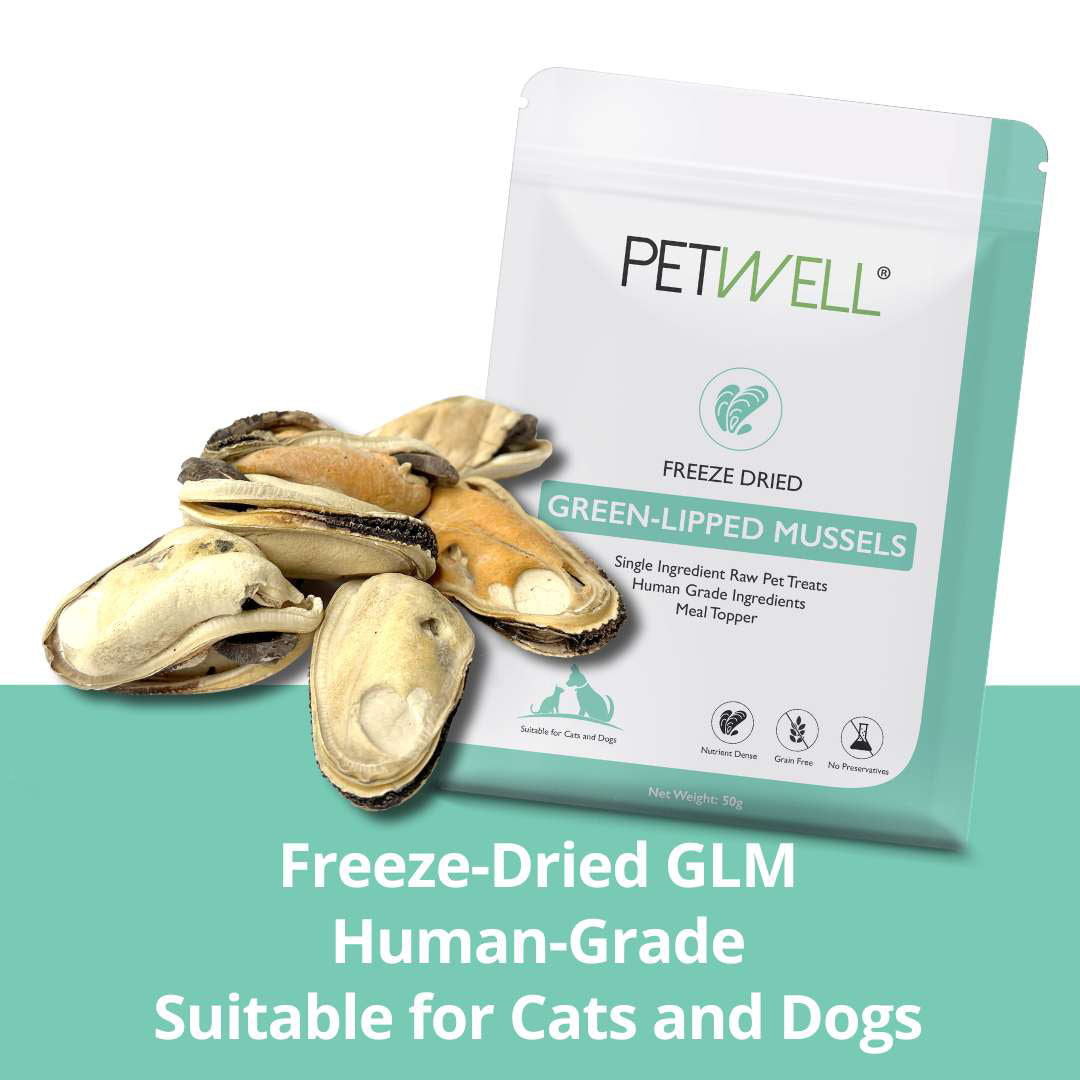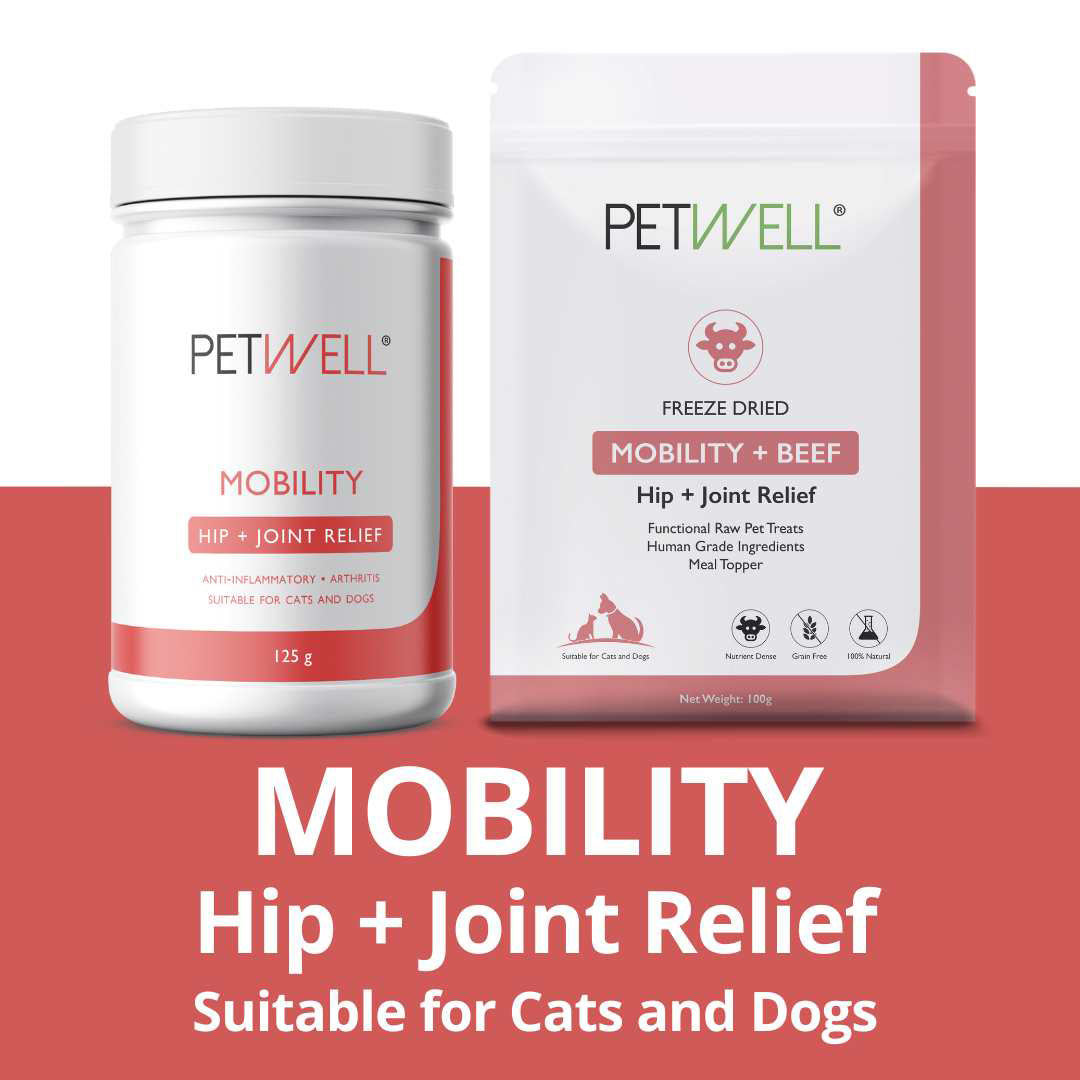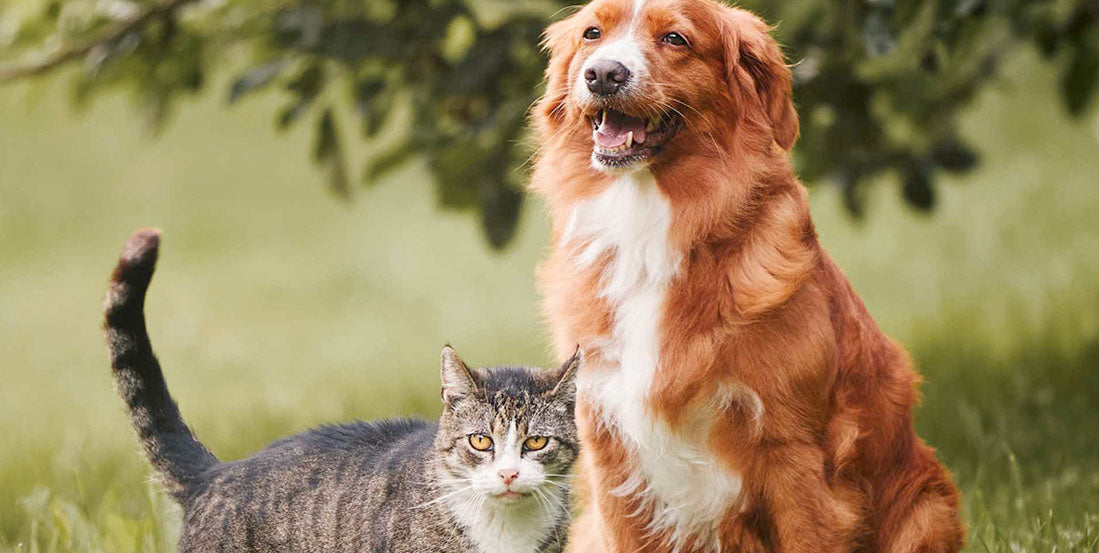Popularity around holistic pet care has been gaining traction and becoming more of the norm among pet parents.
This shift can be attributed to a growing awareness of the interconnectedness of all aspects of an animal's well-being and an increased understanding that pets, much like humans, require a comprehensive approach to health and happiness.
Pet owners are recognising that, just as humans seek specialised professionals for various aspects of our health, we now acknowledge that the expertise of holistic veterinarians, animal behaviourists, and pet nutritionists can offer tailored solutions that cater to our pets' unique needs.
This paradigm shift signifies an era where pets are viewed not just as animals to be taken care of, but as cherished beings with intricate emotional and health needs that warrant a holistic and comprehensive approach.
PetWell THRIVE supplement and functional treats are meticulously crafted all-natural immune-supporting supplement and treats that seamlessly enhances your holistic pet care approach.
With a blend of premium ingredients and a focus on holistic harmony, PetWell THRIVE empowers you to provide the best for your fur family. From antioxidant-rich greens to essential nutrients, every element is chosen to optimise your pet's immune defences – try PetWell THRIVE today.
How to Provide Holistic Pet Care for Your Cat or Dog
Providing holistic health care for your cat or dog involves considering all aspects of their well-being, including physical, mental, emotional, and social needs.
Here are some steps you can take to ensure you're offering holistic care for your pet:
Balanced Nutrition
Research and provide a well-balanced and species-appropriate diet for your pet. Consult with a pet nutritionist or naturopath to ensure their nutritional needs are met, considering their age, breed, activity level, and any specific health concerns. Read more Creating a balanced diet for your dog.
Physical Activity
Engage your pet in regular physical activity and playtime. This not only keeps them physically fit but also provides mental stimulation and emotional enrichment.
Emotional Well-being
Pay attention to your pet's emotional needs. Spend quality time with them, engage in activities they enjoy, and provide them with safe and stimulating environments.
Regular Veterinary Check-ups

Schedule routine check-ups with a veterinarian who supports a holistic approach. These appointments can help identify potential issues early and ensure your pet's overall health.
Social Interaction
If your pet is sociable, encourage positive interactions with other pets and humans. Socialisation can contribute to their mental and emotional well-being.
Stress Management
Be aware of sources of stress for your pet and take steps to minimise them. Provide safe spaces for relaxation and consider calming music to soothe them and calming supplements like PetWell CALM supplement and functional treats. Read more on The Link Between Pet Anxiety and Immune System
Environmental Enrichment
Create an environment that caters to your pet's natural instincts. Provide toys, scratching posts, climbing structures, and hiding spots for cats. Dogs will benefit from toys that challenge their minds and bodies.
Natural and Alternative Therapies
Explore natural and alternative therapies, such as acupuncture, laser therapy, massage, and herbal remedies, in consultation with holistic vet professionals.
Mindful Grooming
Regular grooming not only keeps your pet's coat healthy but also promotes bonding and helps you identify any health issues.
Preventive Care
Stay up to date with vaccinations, parasite control, and dental care to prevent common health problems.
Holistic Veterinarian
Seek out a veterinarian who takes a holistic approach to pet care. They can provide insights and treatments that align with your goal of holistic well-being.
Holistic Supplements
Consider providing your pets with all-natural, holistic supplements that support their specific needs. Such as digestion health, joint health, immune support and anxiety management.
Holistic Approaches to Behaviour Training
Address behavioural concerns through understanding and positive reinforcement methods rather than punishment-based approaches.
Natural and Safe Household Products
Use natural and pet-safe household cleaning products to minimise your pet's exposure to harmful chemicals.
While a holistic approach can offer numerous benefits, it's not meant to replace traditional veterinary care. Instead, it complements conventional treatments to provide a well-rounded and comprehensive approach to your pet's health and well-being |
Remember that every pet is unique, so it's essential to tailor your approach to your pet's individual needs and preferences. Consulting with holistic veterinarians, pet behaviourists, and nutritionists who support a holistic approach can provide you with personalised guidance for your pet's well-being.
Benefits of Holistic Pet Care
Taking a holistic approach to pet care contributes to your pet's overall health and happiness.
Here are some benefits of adopting a holistic approach to pet care:
Comprehensive Well-being
Holistic pet care addresses not only the physical health of your pet but also their emotional and mental well-being. This can lead to a more balanced and content life for your pet.
Preventive Care
By focusing on all aspects of your pet's health, you're more likely to catch potential issues early and prevent them from developing into more serious problems. Prevention is better than cure!
Customised Care
Every pet is unique, and a holistic approach takes into account your pet's individual needs, preferences, and challenges. This can lead to tailored care plans that suit your pet's specific requirements.
Holistic pet care means considering all aspects of their well-being, including physical, mental, emotional, and social needs |
Reduced Stress
A holistic approach often includes strategies to reduce stress and anxiety in pets, which can have a positive impact on their overall health. This can be especially beneficial for animals that are easily stressed. Read more on the 5 Most Common Forms of Pet Anxiety
Long-Term Health
By promoting a balanced lifestyle, healthy nutrition, and mental well-being, holistic care can contribute to your pet's long-term health and longevity.
Enhanced Bond
Taking a holistic approach involves spending quality time with your pet, understanding their behaviours, and building a stronger bond through communication and interaction.
Positive Behaviour
Addressing emotional and mental needs can help reduce behavioural problems. A well-balanced and content pet is less likely to develop destructive or anxious behaviours.
Improved Nutrition
Holistic pet care places a strong emphasis on nutrition that supports your pet's specific needs. This can lead to better digestion, joint health, improved immune function, and a healthier coat.
Support for Chronic Conditions
For pets with chronic conditions, a holistic approach can offer a more comprehensive and integrated management plan, potentially improving their quality of life.
In Summary
The parallels between human and pet health play a significant role in this evolving trend. People have begun to view their pets as more than just animals; they are valued family members deserving of the same thoughtful care and consideration that humans receive.
Furthermore, the growing availability of information has empowered pet parents to educate themselves about holistic practices and the benefits they can offer. This knowledge fosters a sense of responsibility and empowerment, encouraging pet owners to take a more proactive role in their pets' health management.
As the bond between humans and their pets deepens, pet parents are invested in ensuring the lives of their pets are enriched and prolonged through holistic care that addresses all dimensions of their well-being. Read more Tips to keep your dog healthy and happy
Disclaimer: The entire contents of this email and website are not to be taken as medical advice. The team at Pet Squad Pty Ltd trading as PetWell encourages you to make your own pet healthcare decisions based on your research and in partnership with a qualified pet healthcare professional.
